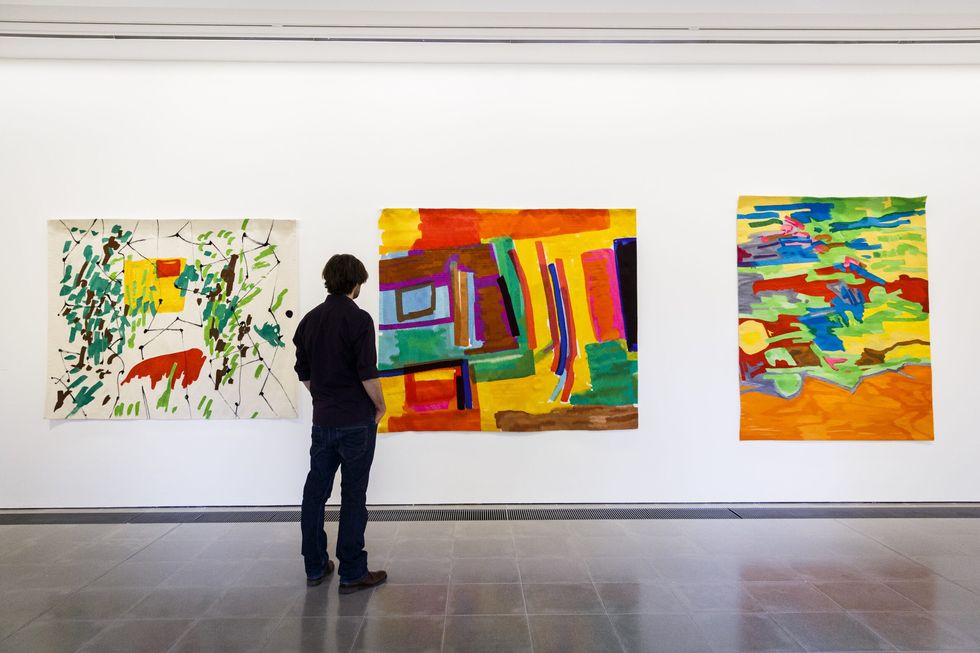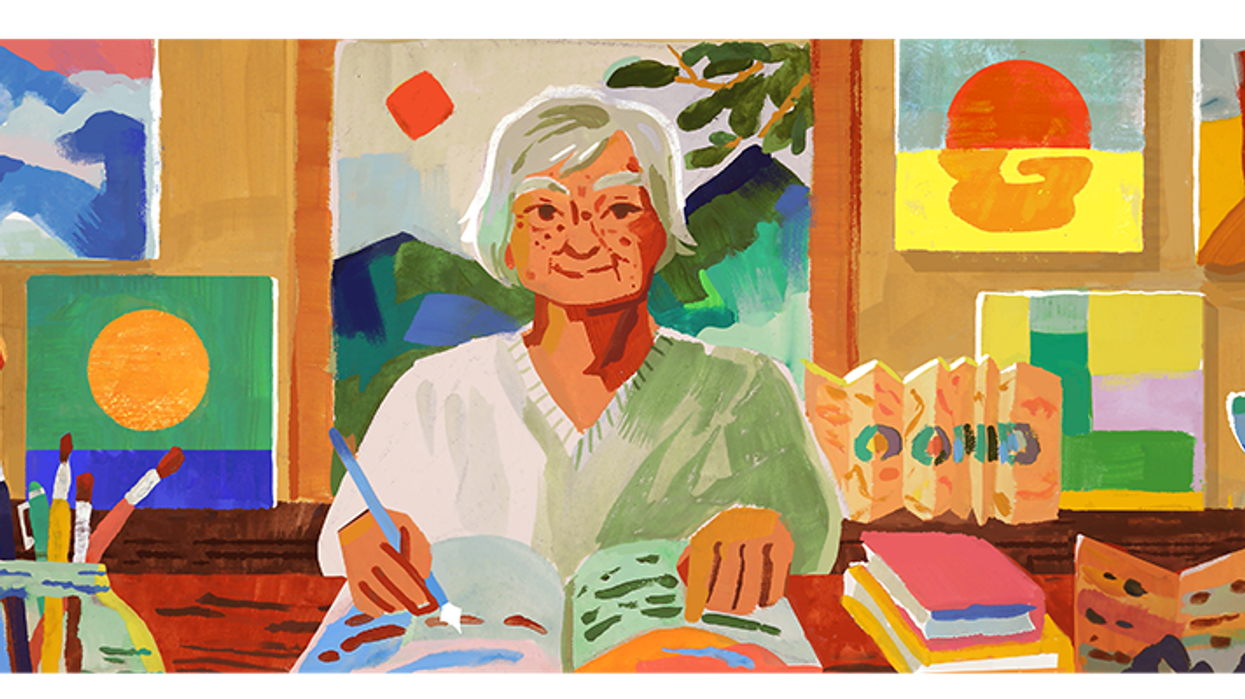Etel Adnan, a pioneering Lebanese-American poet, essayist, and visual artist, was a creative force whose work transcended cultural and artistic boundaries. Born in 1925 in Beirut, Lebanon, Adnan's diverse heritage influenced her unique artistic style.
Adnan's father, Assaf Kadri, was a Sunni Muslim-Turkish high-ranking Ottoman officer of Albanian descent, while her mother, Rose "Lily" Lacorte, was a Greek Orthodox woman from Smyrna. Adnan's upbringing in a multicultural family laid the foundation for her later works, which would integrate elements of her rich heritage and varied life experiences.
Adnan's early education in French convent schools and subsequent studies in philosophy at the University of Paris introduced her to a broad range of artistic and intellectual influences. She continued her academic journey in the United States, studying at the University of California, Berkeley, and Harvard University, before settling into a teaching career at the Dominican University of California in San Rafael.

In an interview, when asked about how busy she is, she replied, "Never in my life have I said that I was busy. When something is asked of me, I’m available. It’s a quality of my character, not an effort."
While Adnan's literary accomplishments are significant, her visual art stands out for its vivid colours and innovative use of media. Her work often focused on abstract compositions and landscapes, characterised by bold strokes and an emphasis on the "immediate beauty of colour."
Adnan's early abstract paintings were crafted using a palette knife to apply oil paint directly from the tube onto the canvas. Her later work often featured Arabic calligraphy, inspired by her time copying words from an Arabic grammar.
Adnan's creativity was not limited to painting; she explored other media such as tapestries, films, and artist's books. Her artistic journey saw her works exhibited across the globe, including notable exhibitions at documenta 13 in Germany in 2012 and the Whitney Biennial in 2014.

Her career included prestigious accolades such as her inclusion in Making Space: Women Artists and Postwar Abstraction at MoMA in 2017 and a retrospective at MASS MoCA in 2018. Adnan's multifaceted talents were further recognised with a 2020 Griffin Poetry Prize for her book Time.
When asked about her inspiration, "In the room in which I first painted, in the philosophy of art department of an American university at which I was teaching, there were canvases, paper, brushes, knives. When I picked up a sheet of paper—not a canvas—the head of the department gave me tubes of coloured paint, little tubes that had been left lying on the ground. Right away I found what’s known as a palette knife—a painter’s knife, not a kitchen knife—and I think the object itself, by its nature, allows you to make only flat shapes. So, I didn’t start painting with a brush. I really began with this knife, and it has remained my instrument," she said.
Etel Adnan passed away in Paris on November 14, 2021, at the age of 96. Her enduring legacy as a multidimensional artist continues to inspire future generations. Through her vibrant visual art and evocative literary works, Adnan's voice and vision remain a testament to her creative brilliance.
Today, Google doodle represents her artwork, on her birth anniversary, a tribute to her contribution to the world of art.




